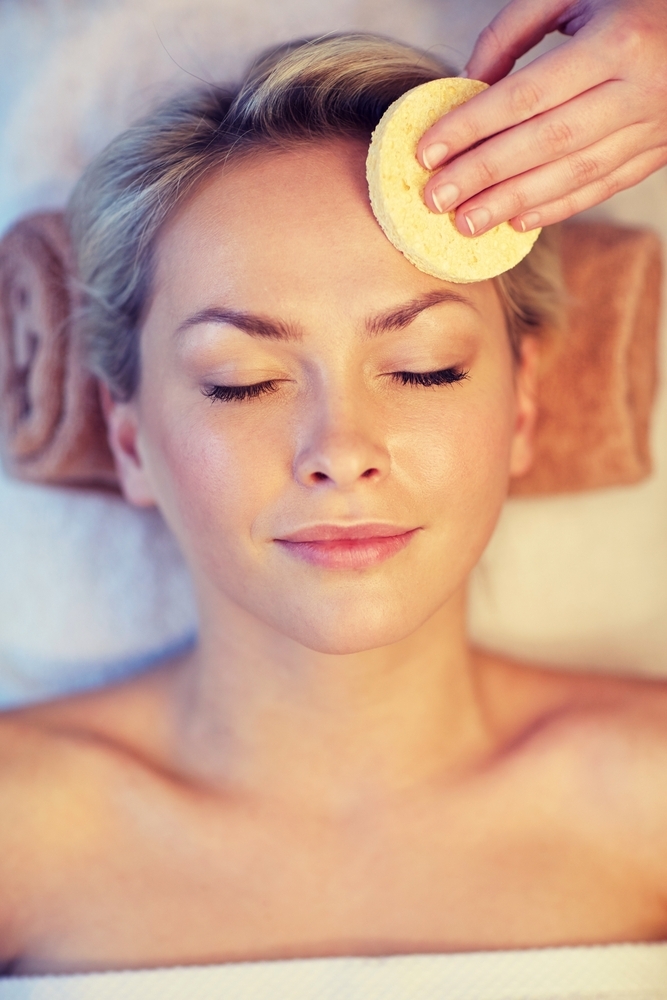Simply put, exfoliation is the removal of dry, dead skin cells that rest on the surface of your skin. There are two ways to exfoliate your skin:
- Physical Exfoliation – Uses washcloths, facial brushes, dry brushes or scrubs that use exfoliating ingredients like sugar or salt.
- Chemical Exfoliation – Works by dissolving the “glue” that binds skin cells and sloughing them from the skin. The most commonly used chemical exfoliants are alpha- and beta-hydroxy acids, though retinol is also used in many anti-aging products because it stimulates cell turnover.
Why is Exfoliation Important for Healthy Skin?
Your cells naturally regenerate, but the process slows down considerably as you age. As these skin cells pile up on your face, you may notice that your face looks dull, feels rough and appears dry. Additionally, allowing these dead skin cells to accumulate can result in clogged pores which cause blemishes and acne.

Without proper exfoliation, the ingredients in your skin care products are not able to penetrate the skin and be fully absorbed. Bottom line, your face products are less effective if you aren’t exfoliating and if you have dead skin cells accumulating on the surface of your face, you are inviting more skin care problems. Here are some of the greatest benefits to regularly exfoliating your skin:
- Clear Breakouts and Acne – Skin that is acne-prone sheds more skin cells than any other type of skin, but these skin cells don’t fall away from the face. These skin cells stick to the surface of your skin and clog your pores and follicles which causes your skin to produce more oil that causes blackheads and other blemishes. Exfoliating your skin regularly reduces skin buildup and decreases the likelihood of blemishes forming.
- Improves Skin Texture – When you exfoliate dead skin cells away, your skin’s natural renewal process is sped up which allows younger, healthier skin to take the place of the dry, dead cells. This will even out complexion taking it from dull to bright and rough to smooth.
- Minimize the Appearance of Pores – Dead skin cells on the surface of your skin clogs your pores and can trap other dirt and debris in your pores which make your pores appear larger. Exfoliating your skin essentially decongests them and diminishes the appearance of your pores.
- Reduce Visible Signs of Aging – Your skin becomes drier and less elastic during the aging process which results in visible signs of aging. As previously mentioned, regular exfoliation changes the rough texture of aging skin to a smooth texture. Exfoliating also reveals more luminous skin and can help to combat other signs of aging like discoloration from both age and sunspots.
Exfoliation is critical for healthy, youthful looking skin and it makes your skin care products more effective. You can exfoliate your entire body to see smoother, more even skin, but be careful that you don’t overdo it. Using harsh scrubs can cause damage, so it’s best to stick with gentle exfoliators. As a general rule, exfoliating two to three times each week is plenty to keep your skin free from dead skin cell debris, but some people that use very low concentrations of alpha- or beta-hydroxy acids may exfoliate every night. Start exfoliating today to reveal younger and healthier skin.




